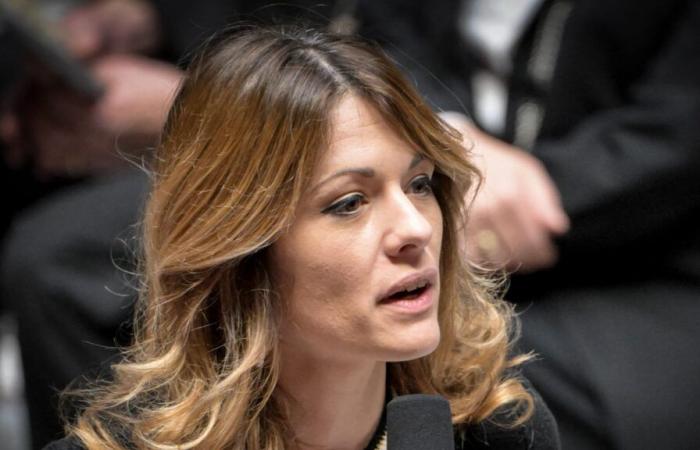
In the event of a motion of censure adopted against the Prime Minister, government spokesperson Maud Bregeon judges that the National Rally (RN) and the left will have to “assume responsibility for a lasting weakening of France”.
Increase the pressure a little more. After the interview with Michel Barnier this Tuesday, November 26 on TF1, the government spokesperson is providing after-sales service to avoid at all costs a motion of censure which would overthrow the Prime Minister. With a strategy: shift the responsibility to the opposition camp.
“Those who would take the risk of sending the country into the wall will have to assume responsibility for a lasting weakening of France,” shouts Maud Bregeon this Wednesday on France info.
“Deep into the deficit”
For several days, the executive has been trying to politically save the head of government. And for good reason: Michel Barnier has every chance of being overthrown around December 20 in the National Assembly.
The Prime Minister reiterated to the 8 p.m. newspaper that he would “certainly” use 49.3 to get the budget adopted in an attempt to reduce the country's heavy deficit. Its activation will allow oppositions to file a motion of censure.
To achieve this, they must collect at least 289 votes. If the votes of the entire left and the RN are added together, they number 320 deputies, more than enough to bring down Michel Barnier.
If his government falls, “there will probably be a fairly serious storm and serious turbulence on the financial markets”, Michel Barnier further warned.
“We have the choice between raising our heads, accepting a recovery budget (…) or sinking into a deficit which we know where it will lead, towards a lasting weakening on the economic level”, maintained Maud for her part Bregeon this Wednesday morning.
Tools to have a budget even without Prime Minister
Will these warnings be enough to convince the RN and part of the left, notably the socialists, not to support the motion of censure? Nothing is less certain.
From a constitutional and legislative point of view, the tools exist to have a budget, even with a government overthrown, whether by recourse to a special bill or by recourse to ordinances.
First option: article 45 of the organic law relating to finance laws which makes it possible to rely on a “special bill” to “continue to collect existing taxes” until the vote on a proper budget. due form next year.
Second option: recourse to orders permitted by the Constitution if the debates extend beyond 70 days, as set out in article 47. This year, the end of this constitutional deadline will occur on December 21 at midnight.
But from a political and financial point of view, the situation could become complicated. Investors in the markets have shown signs of nervousness in recent days.
French debt still attractive
The gap between interest rates on the 10-year benchmark loan between France and Germany has reached its highest level since 2012 – a sign that could suggest that Paris may eventually struggle to have its debt purchased by the markets.
The observation, however, remains to be put into perspective: in 2012, Germany borrowed at interest rates among the lowest in its history, mechanically increasing the difference with France.
As for “the quality of its debt”, in other words the chances for investors of still being repaid, it remains among the best of the countries evaluated, despite a downgrade last July by the Standard&Poor's agency when France was in full swing. political crisis.





